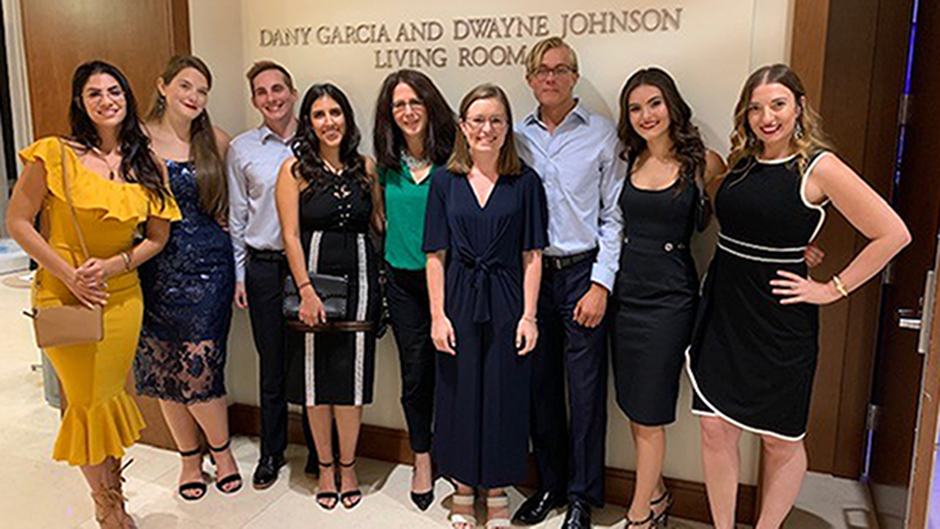Miami Law’s Innocence Clinic has been litigating Hill’s case since 2014 and found the case weak from the start: There was no physical evidence connecting Hill to the crime. The only other evidence was the questionable identification from two eyewitnesses whose testimony was never challenged at trial.
The clinic is dedicated to identifying wrongful convictions and exonerating innocent individuals like Hill. The clinic has taken Hill’s case from the Circuit Court in Escambia County to the First District Court of Appeal, and now to the Federal District Court for the Northern District of Florida. While the clinic is still fighting to get Hill relief, he remains in prison 700 miles from his family.
“Knowing Hill turned to us in his most desperate time made working on his case that much more rewarding,” said second-year student Oliver Silva. “Hill’s continuing hope has inspired us all.”
At trial, Hill’s lawyer did nothing to challenge the shaky eyewitness identification that formed the basis of his wrongful conviction.
“Eyewitness identification is the leading cause of wrongful convictions nationwide,” said Innocence Clinic Director Craig Trocino. Additionally, trial counsel failed to follow up with two alibi witnesses and one additional eyewitness who testified Hill was not at the scene or the burglary. Had the jury heard any of this testimony, Hill would not be in prison today, Trocino said.
Despite evidentiary hearing testimony that the case was “weak” and credible testimony that Hill was not the person involved, Florida State courts refused to grant any relief. Hill must now convince a federal court that he deserves a new trial. The clinic filed a petition for writ of habeas corpus in the United States District Court for the Northern District of Florida.
“Federal habeas petitions are some of the most complicated of all criminal filings,” said Trocino. “The students in the clinic did a remarkable job in preparing this petition.”
Students in the clinic get the opportunity to work on actual cases that get litigated at the highest levels. Second-year Caroline Herter said the case was an eye-opener. Before working in the clinic, she “could not have imagined that someone could do so little to represent their client facing a life sentence, or that someone could be convicted at all with such a weak case against him.”
The work the clinic does has broad application for clients and students alike. “Working on this petition has been the best experience I’ve had all through law school,” said second-year Nicholas Sconzo. “I will always look back on the writing skills and practical experience I have gained through this process, especially in light of all the good that we are doing.”

